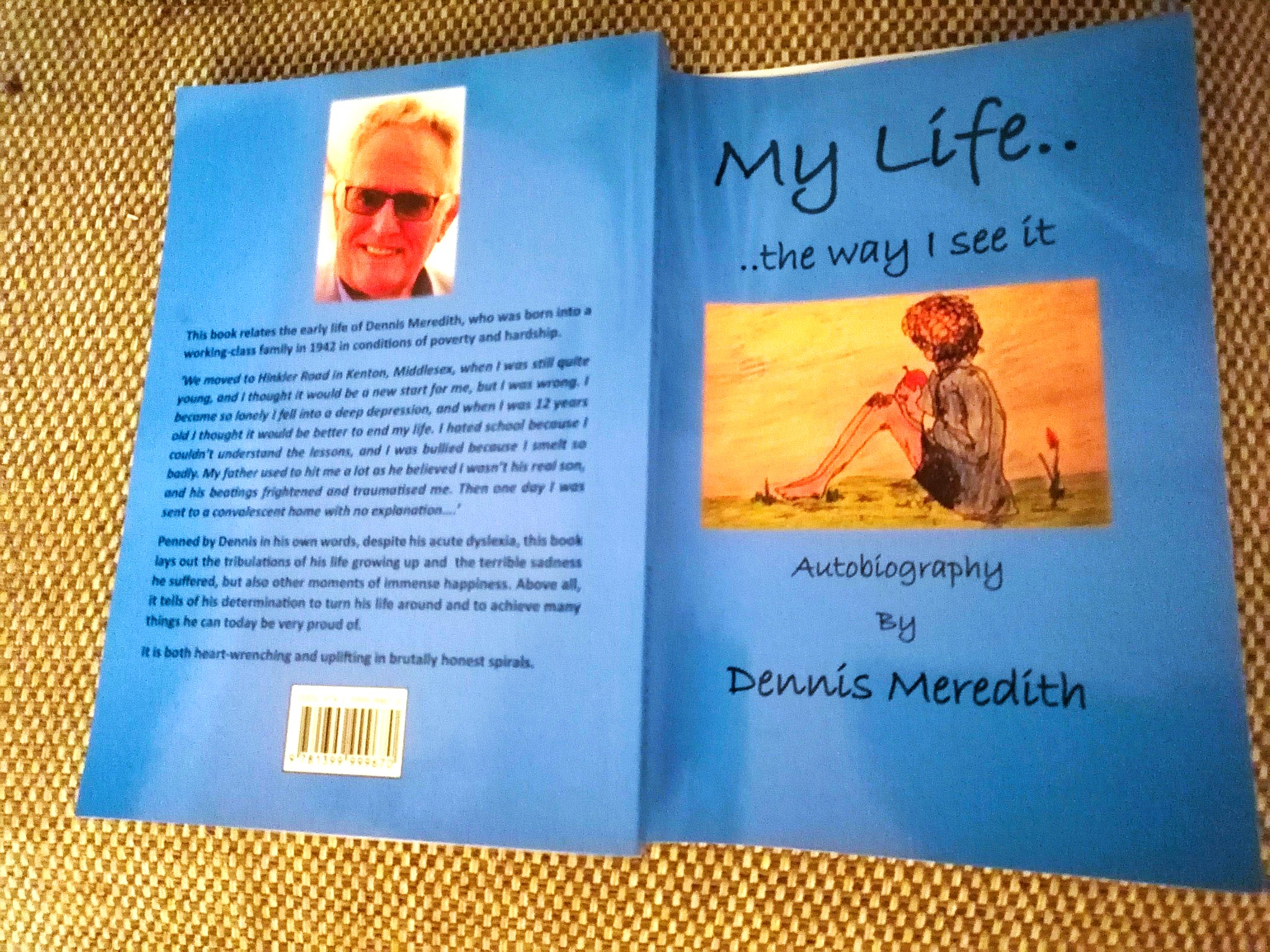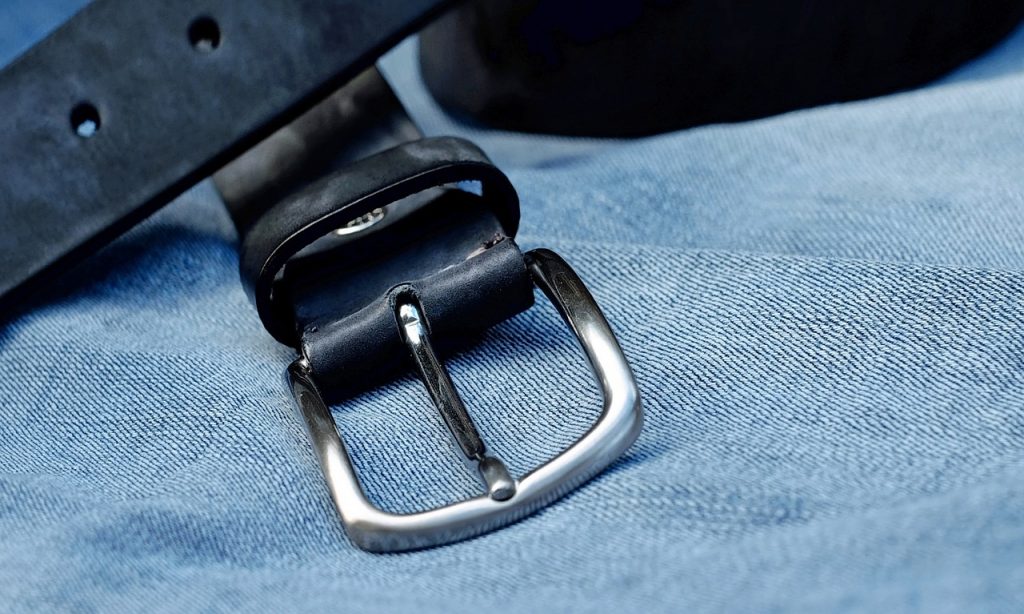From Street Urchin to Mayor of Northampton
At 82 years old, the former Mayor of Northampton has unveiled his remarkable autobiography, My Life the Way I See It. In it, he opens up about his turbulent early years marked by neglect, depression, and family struggles. Despite these profound challenges, he persevered, overcoming his battles with mental health to achieve an extraordinary turnaround, culminating in his appointment as Mayor.
Now retired from public service, he has not only shared his life story in his debut memoir but is already working on a second book. His inspiring journey stands as a testament to resilience and determination, proving that no matter the cards you’re dealt, and at any age, you can still make lemonade from life’s lemons.
Here’s an exclusive look at the first chapter of his recently published memoir.
You can also listen to Chapter One being read aloud here:

Chapter One
The Start
I was born into a working class family. If I’d known then what life was to hold in store for me, I may well have chosen not to be born at all.
The worst thing about my childhood was the depression I suffered, which has stayed with me throughout the rest of my life. I often used to wonder: am I something out of the ordinary, or am I just a bad person?
I was born in January 1942, the youngest of four children; three brothers and one sister. We lived in Holloway in North London. My older sister Irene told me that we were bombed out during the air raids that hit North London in World War II, and it was then that the family was moved to Wessex Buildings in Islington, North London, which is where my story begins.
The memories I have of the apartment in Wessex Buildings are mostly frightening. I was a very nervous child, and I was especially frightened of my father, who had a very loud voice when he shouted. This made me shake with terror, and the memory has stayed with me throughout my life. I also believe that this was a contributing factor to my depression. I can’t remember much about my brother Ron, as we were never close, and he had little influence over my life, unlike my brother Sam, with whom I spent most of my younger years and always looked up to.
Unfortunately, he never felt the same about me.
One minute, he was my protector, and the next, he just didn’t want to know me.
I never knew why he always used to tell his mates that I was his friend, not his brother. Why would he do that? Even now, I can’t understand it.
We grew up in a rather poor environment. I remember walking around Wessex Buildings after the war, looking at the damage. As a young boy, I would play out on the bomb sites, searching through the rubble for any bombshells or shrapnel that I could take home and keep. Can you imagine allowing children to do that in this day and age? It just wouldn’t happen.
Wessex Buildings was a place of horror to me. When I went to bed at night, I’d be terrified that the bedbugs would crawl all over me, and sometimes on waking up in the morning, I’d find that they had.
For this reason, I was terrified of going to bed, and at the age of about four, I became a bed-wetter, a condition that lasted until the age of fifteen. As I wasn’t being looked after very well by my mother, this became an embarrassment to me, and it made me a target for being bullied by my peers throughout my school days.
As a young child living in Wessex Buildings, there was a lot of things I was afraid of, and it became the tenement of horrors for me.
I specifically remember sitting on the cool stone steps a lot, with high walls surrounding me. I grew to detest them. I got this cold feeling when I sat on those steps, as well as in the entrance that was also dismal. Indeed, the block of flats was a permanent place of horrors for me, and even when I was out I was surrounded by the high walls of other similar tenements.

I believe this contributed to the black hole of my depression as a child, and even today that frightening appearance is still in my thoughts. Thank heavens that when they design blocks of flats today, the appearance has completely changed, so as not to invoke terror in a young child.
My father was what was called a spiv, rather like the one from ‘Dad’s Army, the TV comedy. He had very wavy black hair and was as strong as a horse. He was always trying to make money on the side to feed his children. One of his regular pastimes was playing a barrel-organ outside the local pub, and I remember him coming home with a bag of coins which he would throw onto the kitchen table. My mother would count them to see how much he’d collected.
My father’s name was Samuel, but for some reason he was always known as Harry, although I never found out why. His nickname was Shog, and this also remained a mystery for many years. But in later years, his sister, Auntie Lily, explained it to me; when he’d been playing out in the street as a child, he was seen putting horse droppings into his mouth after the milkman had been around with his horse and cart. My grandmother could be heard shouting out: ‘Sam is eating shog!’ So that’s how his nickname stuck to him until he died.
That is how my life began and continued in Wessex Buildings. My father would visit Haringey Dog Track most weeks, and I remember sitting with my brother Sam and my mum waiting for him to come home. We always knew if he’d won, because he was happy, although that was a rare occurrence. If he had lost, I knew that he’d find something I had done wrong, and so take it out on me. My brother Sam was always his blue-eyed boy and could do no wrong in his eyes. It wasn’t the same for me.
My mother’s name was Anna, but she was known as Ann. She was a small, pretty woman with lovely long wavy black hair but she always used to wear it tied back by a headscarf, which was a trend most working class women followed in those days.
My mother was never very close to me. I can’t remember her ever cuddling me as a child, or at any other time in my life. She died at the age of 92 and I was unable to give her a kiss or show her any kind of affection as this just wasn’t how we had been brought up. I wasn’t close to my sister Irene either who was evacuated to Cornwall during the London air raids. Then there was my brother Ron, who has the same attitude today as he always had; Ron first and foremost. Last but not least, came my brother Sam, named after my father. I loved him the most, as we remained always close to each other. I think my father always saw a bit of himself in Sam.
Chapter Two
Growing Up
Some people might ask how I can remember being four years old, but it has always stayed in my mind. I couldn’t never forget the terrible upbringing I had as a child – I only wish I could. But I still feel very bitter about the way I was treated by my father, and after 69 years I still can’t feel very much love for him.
I was walking down Seven Sisters Road one day when I came across him with his mates, gambling with half a penny to see who could get the coin nearest the wall, and I could see the arguments brewing between the men. I don’t like arguments and still don’t feel much love for him even then.
My father was very domineering towards my mum, and I heard him shouting at her when he lost his temper after coming home from the local pub. It was always worse after he had been drinking, which made him lose his temper very quickly when things weren’t going his way. I remember how he’d hit my mum while I sat cowering in a corner of the room, terrified, waiting for him to give me a slap around the head. This was a regular occurrence and when it wasn’t with his hand, it would be with his belt.
He always wore a thick black belt which he took great pleasure in showing me, telling me this was what I’d be getting if I didn’t stay out of his way. I remember how he would hit my mum, and I came to detest that belt. He beat me with it from the age of five until I was fifteen years old.

To order My Life… the way I see it by Dennis Meredith visit https://www.amazon.co.uk/My-Life-way-I-see-it/

